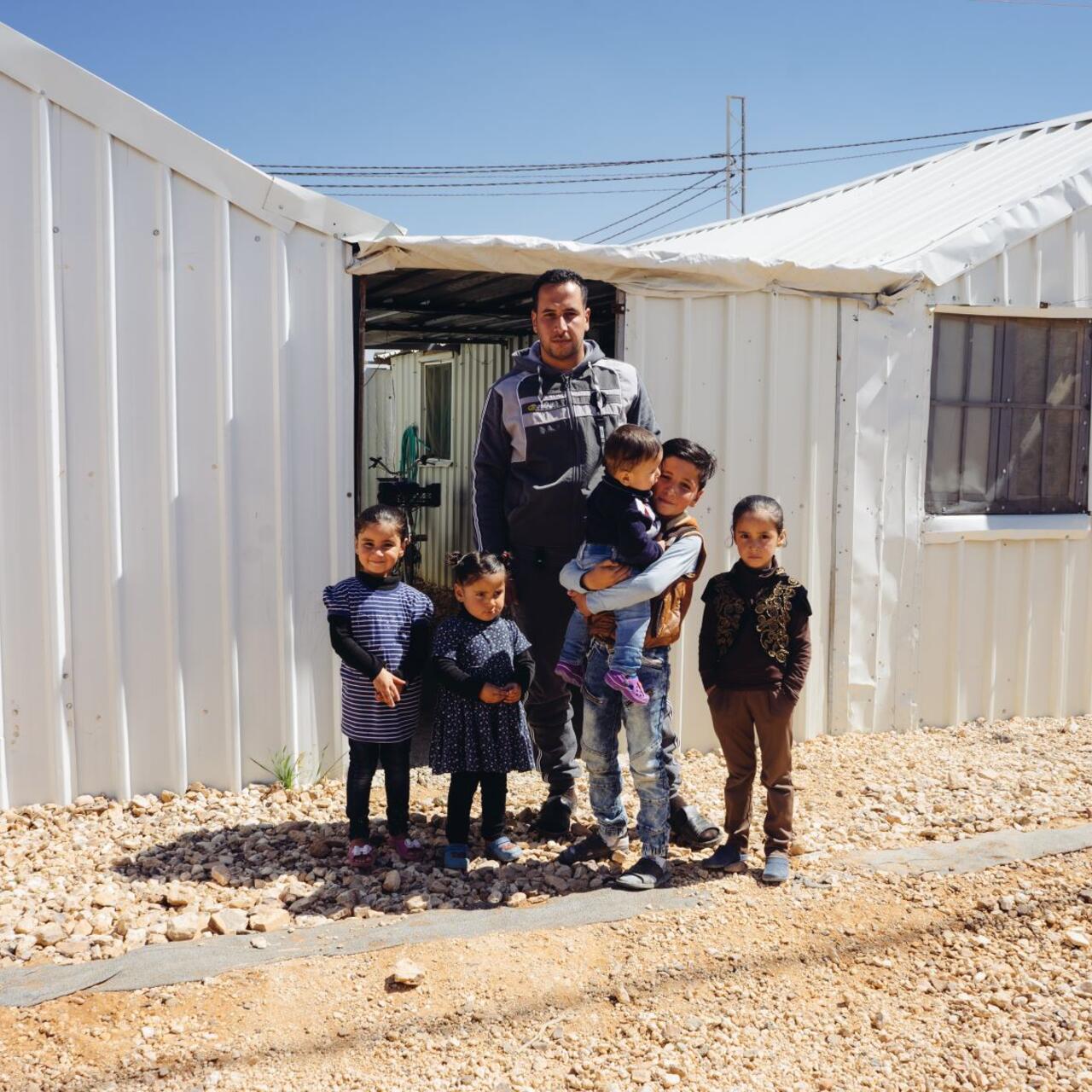
“Play is like medicine for my children”
After fleeing war-torn Syria, Mohammad’s young family discovered the healing power of play with the help of the IRC and Sesame Street.

After fleeing war-torn Syria, Mohammad’s young family discovered the healing power of play with the help of the IRC and Sesame Street.
Mohammad, Hasina and their four young children* left Syria under cover of darkness in 2016. It was 3:30am. They had to hide in the bottom of a livestock truck and could hear the sounds of sheep bleating above them.
“We were very scared—at any time ISIS could have caught us,” Mohammad recalls of the journey. “There are many people that have been killed trying to escape Syria.”
Mohammad and Hasina’s youngest, Rayan, was just 45 days old when her parents were forced to flee to neighboring Jordan. Their other children—Ali, Reem and Hiba—were all below the age of seven. “My children were too young to understand what was happening, that we were escaping from death,” Mohammad recalls. “We didn’t explain, we just moved.”
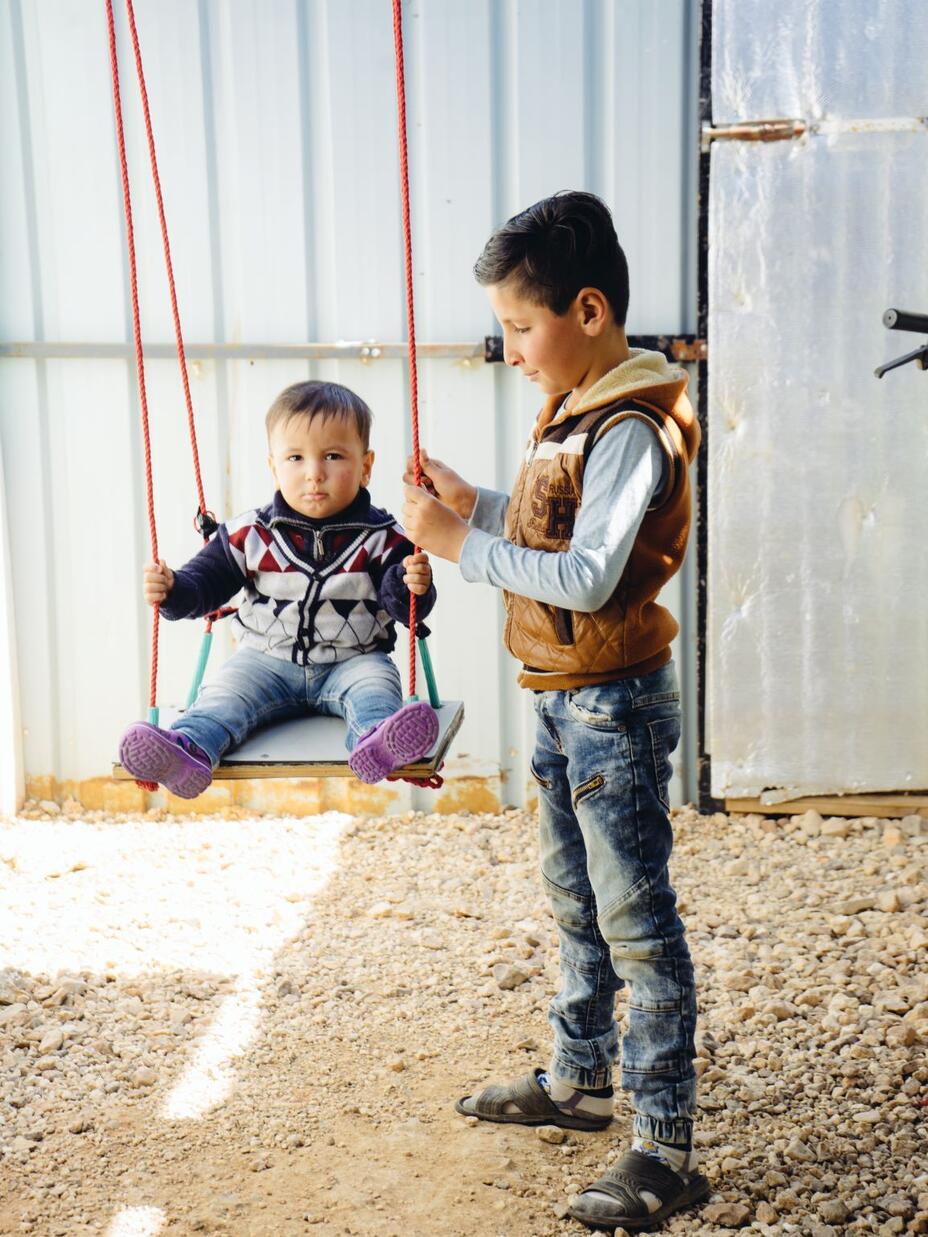
When the family first arrived in Jordan they had to stay on the border in Rukban, a makeshift camp where refugees like them had limited access to aid. “[Being in] Rukban was like dying,” Hasina says.
Later they moved to Azraq refugee camp, an hour’s drive from the capital, Amman. Miles of desert surround Azraq, where thousands of white metal containers with pointed roofs sit neatly next to each other. Each container houses families like Mohammad’s, many of whom have been living there in limbo for years, unsure of what their future holds.
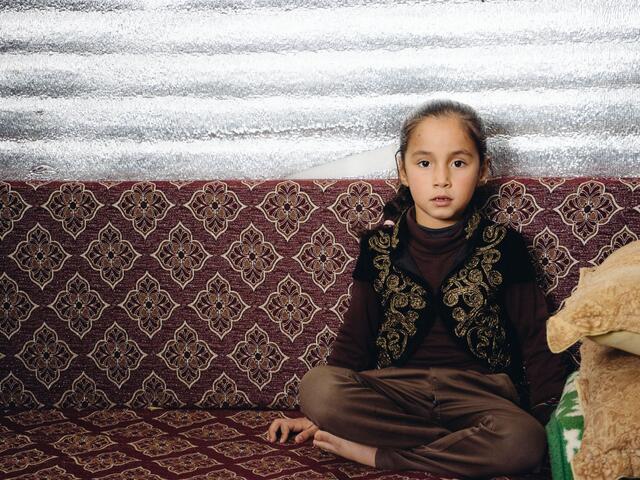
While the family was living in Azraq, the mental health effects of their experiences in war-torn Syria started to surface. “One day, military planes went over us in the sky, Mohammad says. “Reem got scared. From that time, she didn’t want to talk to anyone: She wanted to eat on her own, play with her toys on her own, and be by herself.”
Then the family learned about Ahlan Simsim, an early childhood development program the International Rescue Committee runs in the camp. It’s part of a larger partnership with Sesame Workshop, the nonprofit organization behind Sesame Street.
The name means “Welcome Sesame” in Arabic, and the program helps children recover from trauma and deal with stress. Play is a huge part of that recovery, and for Reem and her siblings, it’s been vital. “Play is like medicine for my children,” Mohammad explains. “For most children, it’s fun to play—but for my children, it’s a need.”
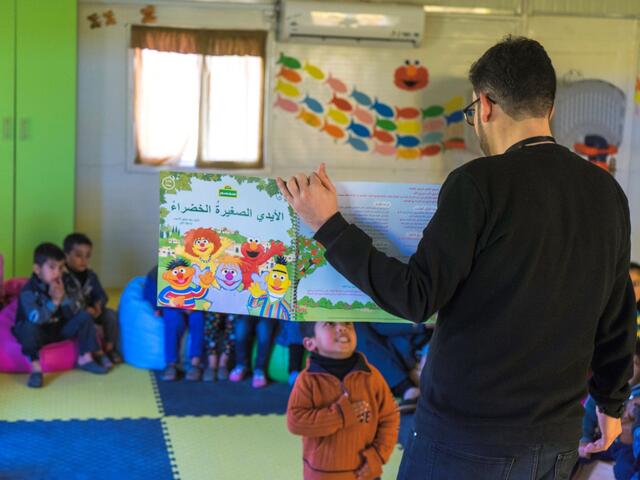
Reem, Hiba and Rayan have all benefited from attending Ahlan Simsim sessions. “At the beginning they were shy and wouldn’t talk to anyone,” Radia, a volunteer at the IRC’s Azraq children’s center, explains. “Reem used to put her chair next to the door and wait there alone. It took a month, but they started to interact.”
Today the girls clap along to songs, shout answers to teachers’ questions and play with other children.
“When Reem came back from the center she started saying, ‘Hey, Mom—I have a new friend,’” Hasina says.
Now six years old, Reem is enrolled in primary school in the camp. Hiba, who’s five, and Rayan, who’s three, still regularly go to the Ahlan Simsim sessions.
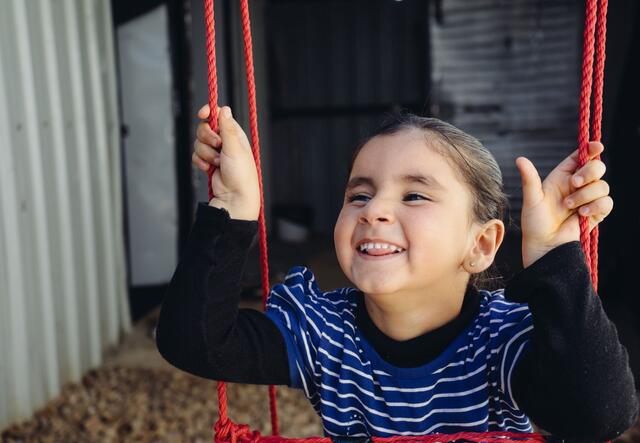
The beaming and confident Hiba breaks into giggles as she’s pushed in the makeshift swing outside the family’s container home. Meeting her, you would have no idea of what she’s been through.
Beyond the emotional trauma of growing up in a war zone, she’s also coping with another serious challenge.
“Two years ago, we found out Hiba had a brain tumor,” Mohammad says. “There are no treatments for her in the camp. She’s been referred, but it takes time. It took a year and 11 months to have the scan.”
Mohammad has struggled to get treatment for his daughter while trying to make ends meet. “I’m stuck inside this camp and I cannot find work,” he says. “I had to sell everything I owned. We spent all our money getting here and paying for food.”
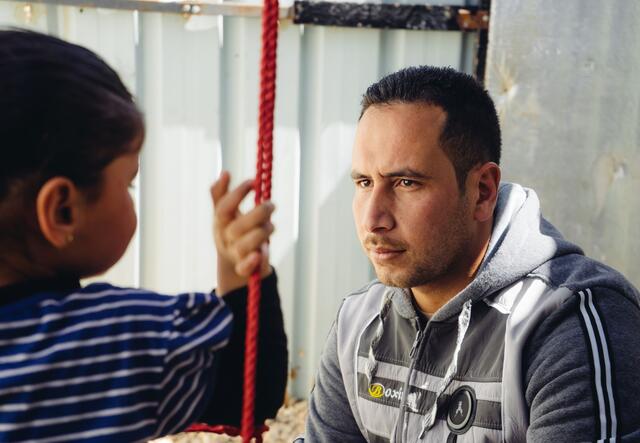
Though it all, Mohammad is focused on keeping his children positive—and Ahlan Simsim remains an important part of their life in the camp. But he dreams of the day his family will no longer be refugees.
“Maybe it will take time,” he says, “but we hope we can return to Syria and start a new life.”
*The family's last name has been omitted for their safety.
Learn more about Sesame Street and the IRC.
The IRC in Jordan
The IRC has been operating in Jordan since 2007, supporting refugees and the local communities hosting them. Find out more about our work on the ground.
This story was first published by IRC Europe.